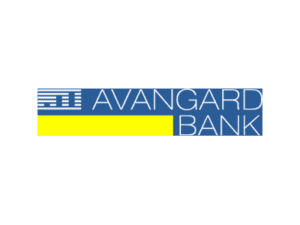
The chairman of the board of directors of IMC agricultural holding, Oleksandr Petrov, for the period on December 27-30 bought 99,742 shares of the company at a price of PLN32.28 per share for a total of PLN3.22 million ($793,020 at the rate of the National Bank of Poland), thereby increasing his share in the charter capital of the agricultural holding to 81.21%, according to the website of the Warsaw Stock Exchange.
According to the group of companies, Petrov personally, as well as through his companies Richmarket Investments Ltd and Agrovalley Limited, owns shares in IMC in the amount of 26,945,415.
The IMC share price did not change over the week, remaining at the level of PLN32.3, and since the beginning of the year it has increased 1.7 times.
As reported, in 2020, the agricultural holding increased its net profit 4.3 times compared to 2019 – to $31.71 million, EBITDA – 1.8 times, to $71.84 million, revenue decreased by 5% – to $161.39 million.
IMC in 2020 sold 610,930 tonnes of corn (less by 14% compared to 2019), wheat – 118,060 tonnes (more by 54%), sunflower – 86,830 tonnes (more by 7.1%), soybeans – 1,310 tonnes (reduction by 25 times).
In May 2021, the company decided to pay 3.4 times more dividends for 2020 than in 2019 – EUR20.57 million, or EUR0.62 per share.
The agricultural holding specializes in the cultivation of grains, oilseeds and milk production in Ukraine. It processes about 123,300 hectares of land in Poltava, Chernihiv and Sumy regions. It owns capacities for storing 554,000 tonnes of grain and oilseeds.

The Antimonopoly Committee of Ukraine (AMCU) may permit Gorky Agrofirm (Kyiv), part of the agricultural holding Ristone Holdings, to purchase Kosari distillery (the village of Kosari and the town of Smila, Cherkasy region), the right to which the company won at a privatization auction in November for UAH 162.88 million.
The state regulator considered the relevant issue at a meeting on December 30.
According to the website of the State Property Fund of Ukraine (SPF), the privatized asset consists of 1,360 names of buildings, structures, movable and other property, including an industrial building, a fermentation department, a granary and a distillery, a company store, a pig farm, warehouses, hangars, etc. The facility is equipped with basic technological equipment, as well as the necessary communications.
The enterprise is located on nine land plots with a total area of 75.74 hectares the village of Kosari and the town of Smila.
Ristone Holdings is an agricultural vertically integrated holding.
Ristone Holdings cultivates 65,800 hectares on the territory of Dnipropetrovsk, Kharkiv and Zaporizhia regions. It is engaged in the cultivation of grain and industrial crops, animal husbandry, production and wholesale and retail trade in agricultural products, in particular, flour, bread, bakery products, etc.
Privatization of the alcohol industry involves the sale by the State Property Fund of 41 distilleries of the state-owned enterprise Ukrspyrt and another 37 factories united in the Ukrspyrt concern. In total, it is expected to attract about UAH 2 billion. At the same time, in 2020, the amount of assets sold at 20 auctions amounted to UAH 1.26 billion.
National bank of Ukraine’s official rates as of 31/12/21

Source: National Bank of Ukraine

Happy New Year! We wish that this year would bring a lot of happiness, good luck, smiles, warmth and joy. Let it be full of vivid emotions, pleasant impressions and joyful moments. We wish everyone in the new year to be healthy, beautiful and successful!
Publisher of “Open4Business”, PhD in Economics, Maxim Urakin, and the “Open4Business” team.

The National Depository of Ukraine (NDU) on December 29 registered the first issue of deposit certificates in Ukraine, the issuer of which was Bank Avangard (Kyiv), the institution’s press service reported.
“A new instrument – a deposit certificate appeared thanks to the innovations of law No. 738 (came into force on July 1). This is the first case when an issue is registered by the central depository, and we hope for great attention to this instrument from the capital market participants,” the NDU said.
The National Depository noted that the technology for issuing a deposit certificate is completely based on paperless communication.
“This is another significant step in the direction of securitization, thanks to which new financial instruments appear,” Maryna Adamovska, a member of the NDU board, said.
As reported, the head of the debt securities issue department of ICU Investment Group, which includes Bank Avangard, Ruslan Kilmukhametov, in mid-December announced the debut issue of deposit certificates for the market.
“The bank’s deposit certificate is a revolutionary product for Ukraine, as it shortens the issuer’s path to the capital market from 2-3 months when issuing bonds to 2-3 working days required for the placement of bank certificates,” he said.
The expert explained that in case of a non-public offering, that is, with a well-known circle of persons, the registration of the issue is carried out by the NDU, and not by the regulator, the National Securities and Stock Market Commission.
“Thus, the bank can very quickly enter the deposit certificate market. If it needs money, it can “raise its hand,” gain demand, register an issue and sell these certificates,” the head of the ICU department noted.